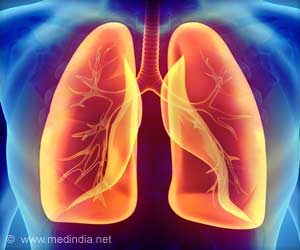Ever dream of shifting around body fat to flatten your tummy and boost your bust all without surgery? Or maybe blocking that ample fat? According to an international study published
Ever dream of shifting around body fat to flatten your tummy and boost your bust all without surgery? Or maybe blocking that ample fat? According to an international study published Sunday, the fantasy could become reality.
The study, published online in Nature Medicine, could "revolutionise human cosmetic and reconstructive surgery and treatment of diseases associated with human obesity," the Georgetown University Medical Center in Washington, which participated in the research, said in a statement.In the study, American, Australian and Slovak researchers describe a mechanism they found by which stress activates weight gain in mice. By manipulating this pathway, they said they were in fact able to selectively add fat to their test subjects.
"We couldn't believe such fat remodeling was possible, but the numerous different experiments conducted over four years demonstrated that it is, at least in mice," Zofia Zukowska, the study's senior author and a Georgetown professor, said in the statement.
"We are hopeful that these findings might eventually lead to control of metabolic syndrome.... Decreasing fat in the abdomen of the mice we studied reduced the fat in their liver and skeletal muscles, and also helped control insulin resistance, glucose intolerance, blood pressure and inflammation," she added.
The researchers tested how stressed and unstressed mice on different diets accumulated and stored fat, discovering that stressed mice eating high calorie food gained twice as much fat as unstressed mice eating the same meals.
"We have known for over a decade that there is a connection between chronic stress and obesity," said Professor Herbert Herzog at the Garvan Institute of Medical Research in Sydney, which participated in the study.
Advertisement
The researchers found that both neurotransmitters (neuropeptide Y, or NPY) and the receptors (neuropeptide Y2 receptor, or Y2R) are activated during stress, leading to obesity and metabolic syndrome in mice on fatty diets.
With more than 300 million people worldwide suffering from obesity and 800 million more considered overweight, according to international estimates, ever more scientists are joining the search for that miracle molecule that will slim us all down.
While most pharmaceutical solutions have so far focused "with moderate success" on appetite suppressants, Herzog said that "our hope is that in the near future pharmaceutical companies, using the results of our research, will develop antagonists against the Y2 receptor that will bring about a reduction in fat cells."
Georgetown professor Stephen Baker, who co-authored the study, meanwhile pointed out that the ability to add fat selectively would be useful for cosmetic restructuring, like facial reconstruction, breast, buttock and lip enhancements.
"This is the first well-described mechanism found that can effectively eliminate fat without using surgery," he said, adding that "a safe, effective, non-surgical means to eliminate undesirable body fat would be of great benefit to our patients."
Source-AFP
LIN/M









